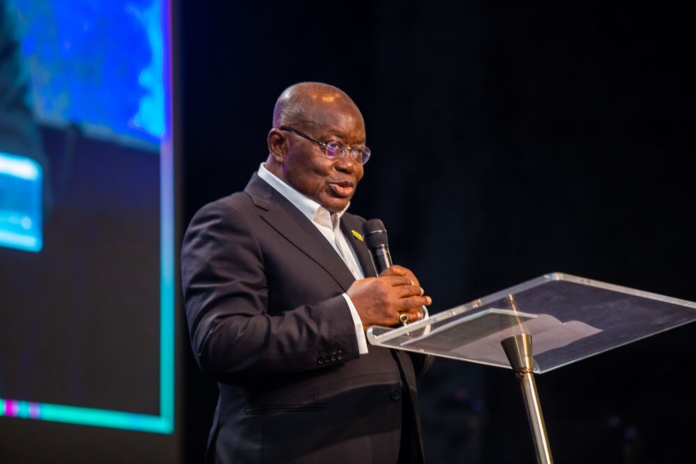
A constitutional law expert in Ghana, Frank Davis, has rejected claims by the Director of Communications of the National Democratic Congress (NDC), Kakra Essamuah, that President Akufo-Addo, on his own, boycotted or led the entire Bar in Ghana to boycott the Supreme Court in 1995 because he disagreed with a decision of the court.
On the contrary, Mr Davis indicates that the decision to boycott the Supreme Court, was a decision taken by the entire Bar Council which at the time, was led by Nutifafa Kuenyehia who was the Ghana Bar Association President from 1992 to 1995.
He further noted to Asaase News that President Akufo-Addo, was the Bar President for Greater Accra Region only and could not have taken such a decision on his own as alleged by Kakra Essamuah.
The senior private legal practitioner also added that the Bar Council’s meeting that resulted in the decision to boycott the courts for a month in 1995, was held at the premises of the Ghana School of law.
“We [the Bar] did not insult, disparage or denigrate the image of the Judiciary. That was never our intention. We understand fully well the boundaries of decent protest” Frank Davis said concerning the boycott.
“Our mission was to register a protest in a strong but an acceptable manner and in solidarity, as well, of a colleague. It was a genuine and well-reasoned decision that we [the Bar], collectively took against the perverseness of that Supreme Court decision” he added.
Allegation
Mr Essamuah, according to the 16 September 2022 front-page publication of the Daily Post newspaper captioned “Akufo-Addo led GBA to boycott courts nationwide over Supreme Court ruling”, alleges that President Akufo-Addo, fore-fronted a month-long boycott of courts in the country in 1995.
The NDC National Communications Director made the allegation in an interview in response to a recent admonishing of the President to lawyers in the country at the opening ceremony of the annual Ghana Bar Association Conference in Ho on Monday 12 September 2022, not to entertain persons who seek to derogate the independence and credibility of the third arm of government, the Judiciary.
“I am very disturbed at the turn of events in Ghana at the moment. I’m a lawyer. Let me tell you a special story. In 1995, I was counsel – junior counsel to Mr. B. J. Da Rocha in a case in which the republic, led by the Deputy Attorney General, Martin Amidu, prosecuted a lawyer for contempt of court,” Kakra Essamuah said.
“The Supreme Court convicted a lawyer called Kwabena Mensah Bonsu he’s still alive, if you like, go and ask him. He was convicted for contempt and jailed for one month at Nsawam Prisons. Do you know what happened in Ghana? Lawyers in Ghana boycotted all courts for one month because of that judgment.
“At that material time, the president of the Greater Accra regional branch of the Ghana Bar Association was Akufo-Addo, who is now president. Now, what is he talking about?” he added.
Respect for Judiciary
President Akufo-Addo, while addressing lawyers at the Bar conference, which comments, necessitated those of Mr Essamuah, observed that recent attacks on the Judiciary by politicians including former President John Mahama, were worrying developments that should not be entertained within the Ghanaian body politic.
“Just as government continues to implement policies to advance the rule of law, and, thereby, reinforce the confidence of the people, and shore up our nation’s reputation as a country governed by the rule of law, there are some who have made it their political agenda to disparage systematically the image of the Judiciary for selfish, parochial, partisan reasons.
“These are the plaintiffs, who go to Court, indeed, to the highest court of the land, provide not a single shred of evidence to back their claims, and, yet, insist that their claims be upheld, despite the elementary violation of the ancient, common-law rules for the discharge of the burden of proof that such a result would entail” President Akufo-Addo said.
“It is no wonder that their claims were unanimously dismissed 7-0 by the apex court. The result of this case is in stark contrast to the result of a similar one in 2013, when the unsuccessful plaintiffs managed to persuade four out of a nine-member court to find for them, and, yet, the earlier plaintiffs chose not to wage a political war against the court.
“It is important that all of us, especially us lawyers, who cherish the democracy we are building, say no to such persons, and guard jealously our democratic way of life, which we have done so much to bring into being. Independent judges, administering the law, protecting the human rights of citizens, and ensuring public accountability, are strong pillars of our democracy,” the President said.
